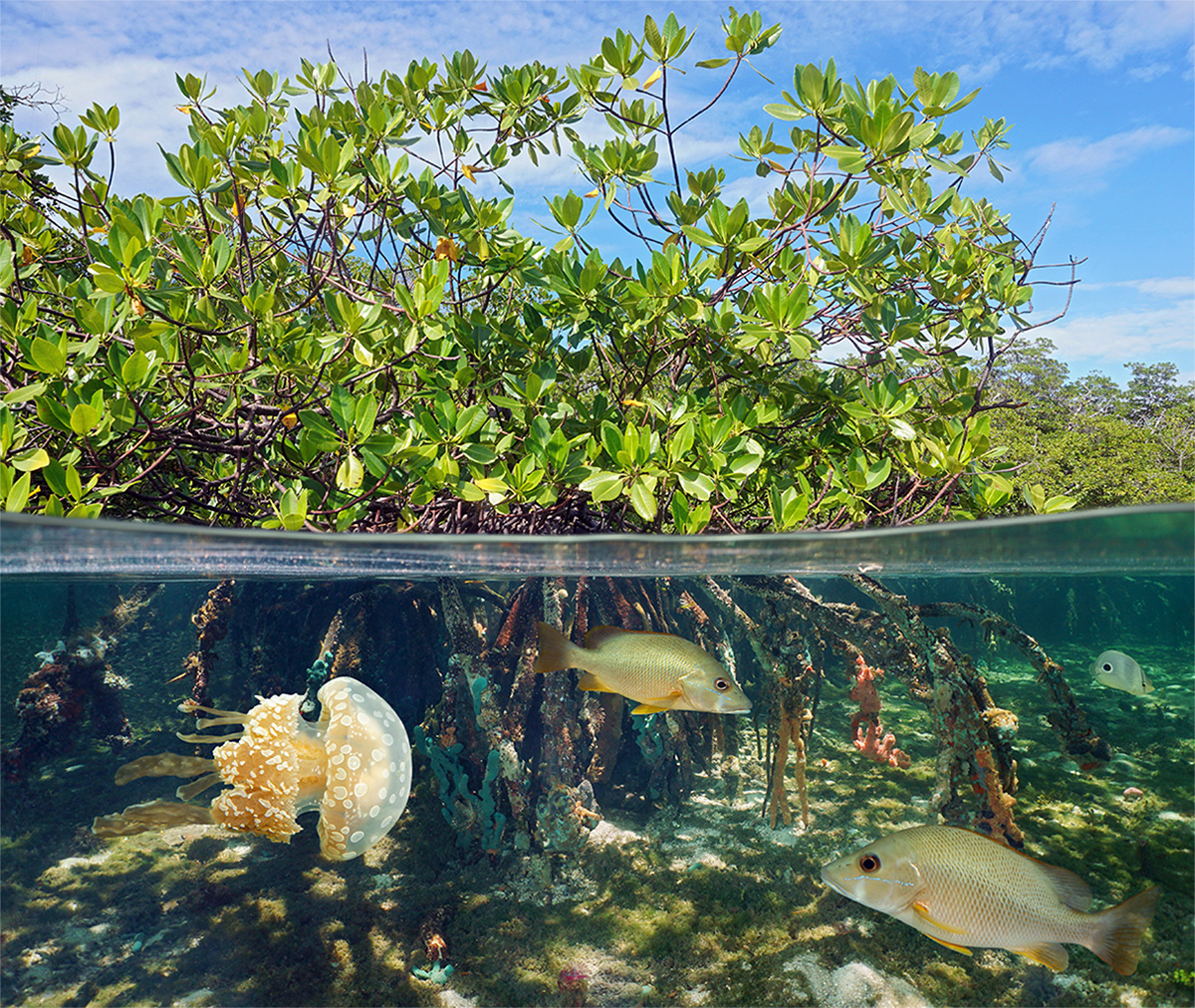Global Environmental Health

Aquatic Ecosystems: Climate Change Impacts on Water Resources and Human Health
January 01, 2023
Expert: Geoffrey I. Scott, Ph.D.
Aquatic ecosystems are communities of plants or animals that live near water habitats such as lakes, ponds, rivers, oceans, or swamps. These ecosystems are beneficial to the environment providing drinking water, food sources, such as fish and oysters, and areas for recreational activities. This ecosystem is under threat of climate change driving up the water temperature and creating more hospitable homes for microbes like Vibrio bacteria.
Aquatic ecosystems are communities of plants or animals that live near water habitats such as lakes, ponds, rivers, oceans, or swamps. These ecosystems are beneficial to the environment providing drinking water, food sources, such as fish and oysters, and areas for recreational activities. This ecosystem is under threat of climate change driving up the water temperature and creating more hospitable homes for microbes like Vibrio bacteria.
In this podcast episode, we speak with Geoff Scott, Ph.D., a clinical professor, and chair of the Department of Environmental Health Sciences at the University of South Carolina. Geoff Scott, Ph.D., along with his colleague Paul Sandifer, Ph.D. of the College of Charleston, co-directs the NIEHS Center for Oceans and Human Health and Climate Change Interactions. We discuss the benefits aquatic ecosystems provide to humans as well as the harms caused by a changing climate on coastal and aquatic environments, in particular how increasing Vibrio bacteria and harmful algal blooms may impact public health.

Geoffrey I. Scott, Ph.D., is an environmental toxicologist with special interest in the ecotoxicology of environmental pollutants including legacy chemicals (e.g. pesticides, petroleum hydrocarbons, and trace metals) and contaminants of emerging concern such as highly antibiotic resistant pathogens, harmful algal bloom toxins, and microplastics. Currently, Geoffrey I. Scott, Ph.D., serves as a faculty member in the Arnold School of Public Health at the University of South Carolina and is an Adjunct Faculty Member in the Marine Science Program at the College of Charleston.


